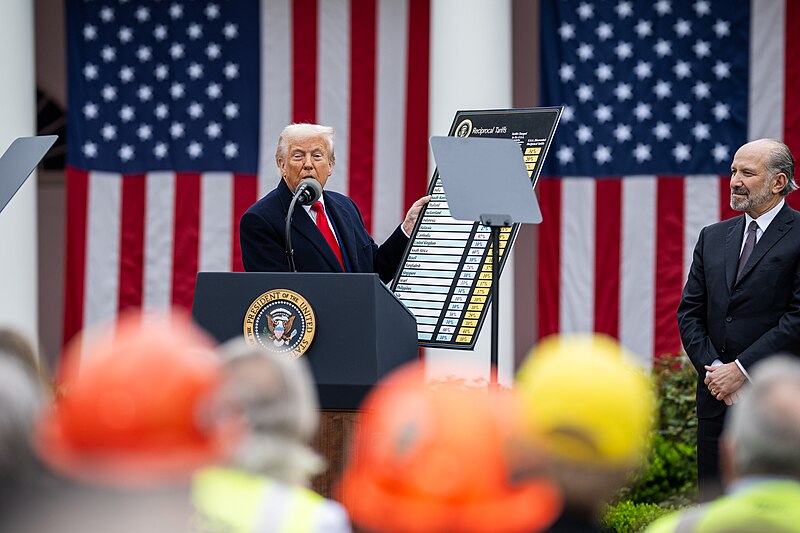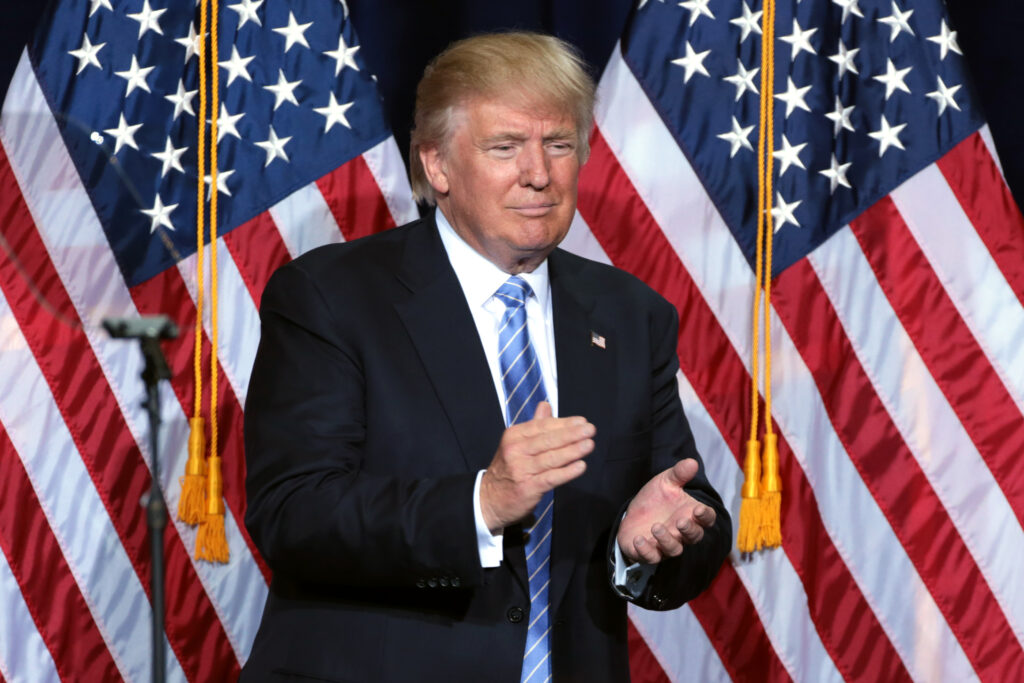Now Reading: Europe and Latin America Amid Trump’s Tariff War
-
01
Europe and Latin America Amid Trump’s Tariff War
Europe and Latin America Amid Trump’s Tariff War

Periodically, the global trade undergoes adjustment phases that, in the early stages, bring desperation and misfortune until they finally stabilize. While awaiting that moment, the trade tensions driven by the Trump administration are redefining global trade dynamics.
The imposition of tariffs by the United States already affects all countries, albeit with varying intensity, and punishes with higher percentages its trading partners, the countries it has deemed most hostile in commercial terms.
LIBERATION DAY RECIPROCAL TARIFFS 🇺🇸 pic.twitter.com/ODckbUWKvO
— The White House (@WhiteHouse) April 2, 2025
Faced with this scenario, international actors must rethink their trade strategies.
Tariff Drift
While American protectionism advances, other countries must seek opportunities in the forced reconfiguration of global trade. The European Union, which had managed to negotiate a preferential tariff regime with the Biden administration, now faces a 20% tariff imposition.
As early as the beginning of 2025, with the first tariff announcements from the new U.S. administration, the European Parliament denounced Trump’s drift toward a trade war with unpredictable consequences for EU member states and their citizens.
Consolidating Agreements
A counterbalance to the effects of the trade war could be the attempt to advance the signing and modernization of trade agreements between Europe and Latin America. On January 17, the European Union and Mexico concluded the modernization of their Global Agreement, in force since 2000. An important step in the evolution of trade relations.
There is also the Comprehensive Economic and Trade Agreement (CETA) with Canada, provisionally in force since September 2017.
The agreement signed with Mercosur at the end of 2024 and the one reached with Mexico consolidate the strategic link between Europe and Latin America and should reduce both regions’ exposure to a limited number of markets, including the U.S.
In this context, the European Commission presented on January 29 its “Compass for Competitiveness” strategy, designed to strengthen the EU’s position in the global economy.
For Spanish companies, this represents an opportunity to diversify markets and expand in strategic sectors such as manufacturing and agri-food. However, the speed of ratification and signing agreements will be decisive in preventing other global actors from gaining an advantage.
Market Volatility
The volatility in European markets triggered by the escalation of tariff announcements has particularly impacted export-oriented companies.
The application of tariffs will affect strategic sectors of the Spanish economy—such as automotive and agri-food—and key exports: automotive components (chassis, gearboxes, braking systems, etc.), wine, olive oil, and pork products.
Affected by Tariffs
Canada and Mexico are closely watching the changes in global and regional trade caused by the trade war and the instability of the USMCA (United States-Canada-Mexico) agreement, which replaced NAFTA in 2020.
While Mexico and Canada redefine their relationship with the United States, Latin American countries must try to strengthen their position on the international trade chessboard and avoid excessive dependence on China.
Brazil, for example, has intensified its trade diplomacy to consolidate itself in strategic sectors such as agribusiness, biofuels, and mining, while the BRICS+ bloc, of which it is a founding member, seeks to reconfigure international trade rules in favor of the Global South.
The impact of trade tensions would particularly affect the agricultural and manufacturing sectors due to their dependence on specific markets (especially the U.S. and China), which entails risks.
This scenario should lead the EU to solidify its role as a strategic partner for Latin America in manufacturing, energy, and agri-food industries, diversifying markets and reducing its vulnerability.
Global Uncertainty
The universal tariffs announced by Trump violate the principles established in the Tokyo Round of GATT in 1979, which granted developing countries differentiated treatment, with preferential access and tariff reductions without requiring reciprocity.
The violation of these agreements multiplies global uncertainty, pushes fragile economies to the brink, increases the risk of retaliation, and erodes confidence in the multilateral trade system.
Faced with this outlook, the EU and Latin America must act pragmatically, balancing flexibility and firmness to protect their economies in a particularly volatile and hostile environment. History is being written with decisions that will define the course of future generations, and the margin for error is minimal.
Translated text of the article Europa y Latinoamérica en medio de la guerra arancelaria de Trump, by Armando Alvares Garcia Júnior published on The Conversation under the license of Creative Commons Attribution 3.0. Read the original in: The Conversation.
Stay Informed With the Latest & Most Important News
-
 01Pepe Mujica: The Rich Legacy of the Peasant Who Knew How to Make Concessions to the Market Without Losing Ideological Direction
01Pepe Mujica: The Rich Legacy of the Peasant Who Knew How to Make Concessions to the Market Without Losing Ideological Direction -
 02Democracy in the Face of Ecological Collapse
02Democracy in the Face of Ecological Collapse -
 03New modelling reveals full impact of Trump’s ‘Liberation Day’ tariffs – with the US hit hardest
03New modelling reveals full impact of Trump’s ‘Liberation Day’ tariffs – with the US hit hardest -
 04New Pope Possesses Attributes That Could Expand Vatican’s Diplomatic Influence in Global Geopolitics
04New Pope Possesses Attributes That Could Expand Vatican’s Diplomatic Influence in Global Geopolitics -
 05What’s so special about Ukraine’s minerals? A geologist explains
05What’s so special about Ukraine’s minerals? A geologist explains -
 0650 years later, Vietnam’s environment still bears the scars of war – and signals a dark future for Gaza and Ukraine
0650 years later, Vietnam’s environment still bears the scars of war – and signals a dark future for Gaza and Ukraine -
 07China’s new underwater tool cuts deep, exposing vulnerability of vital network of subsea cables.
07China’s new underwater tool cuts deep, exposing vulnerability of vital network of subsea cables.













